News
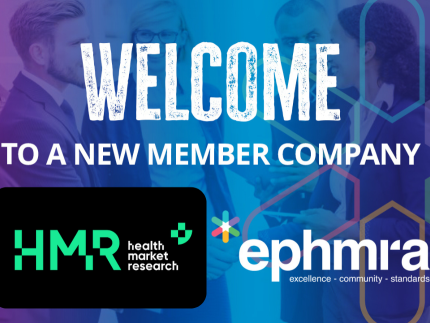
New Member - HMR Health Market Research Portugal
EPHMRA is pleased to welcome HMR - Health Market Research Portugal to the EPHMRA community as an Agency member.
Great to have you on board and we look forward to our collaboration.
João Garção Teixeira
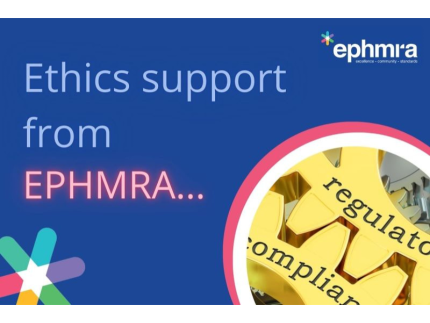
Need expert guidance on ethics and standards in the healthcare market research industry?
At EPHMRA, we’re dedicated to keeping you informed with the latest in Ethics and Standards. Our members get exclusive access to a wealth of valuable resources, including FMV summary reports on HCP FMV and more.
To access these, simply log in to the EPHMRA website and head over to the Resources > Ethics section.

📩 Have a question or want to stay updated on all things EPHMRA?
We’d love to hear from you! Whether you have a query or want to be added to our mailing list, getting in touch with EPHMRA is easy. Simply fill in the form (by clicking the link below) or email us directly at generalmanager@ephmra.org.

EPHMRA Webinar - October 10 2024
14.15 – 15.00 UK time
At the start of the membership year EPHMRA will give an update on the:
- 2024 Code of Conduct – what’s been updated
- 2024 AER Guidelines - what’s been updated
Please note your registration for the webinar will be approved if the membership invoice is paid by 8 October.

Introducing The EPHMRA Board
The management of the Association is undertaken by the Board, which derives its authority from the members, and is responsible for fulfilling the objectives of the Association having regard to the decisions taken by the members at the Annual Meeting.
The Board comprises the following members:
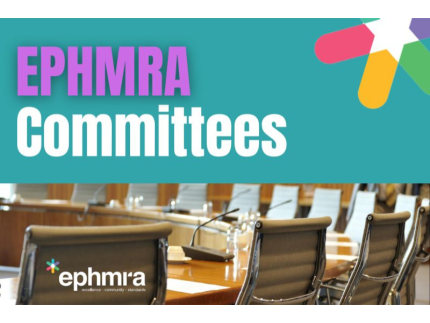
Did you know EPHMRA’s strengths lie in the dedication of its committees?
These groups, made up of both industry and agency members, help shape the future of healthcare market research.
Here's a list of who they are:
🧬 Classification Committee
💻 Data & Systems Committee.
🔍 Ethics Committee
🗣️ Compliance Network
📊 Forecasting Forum
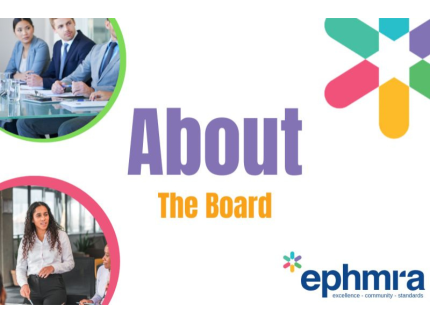
🌟 About the Board 🌟
The management of the Association is led by our Board. Empowered by our member, it is responsible for upholding the Association's objectives based on decisions made at the Annual Meeting.
The Board includes:
The President
The past President and/or Vice President
Up to 5 Industry Board members
Up to 5 Agency Board members

Great to see everyone who attended yesterday at our 2024 Basel One-Day chapter meeting!
What can we say - great papers, great discussions and everyone enjoyed meeting up. A huge thanks again to our meeting convenors:
Monday 23 September 2024 is the deadline for 2025 Conference Paper submissions!
Send in your Synopsis for the 2025 Conference
24 - 26 June, London
The Call for Papers is Launched!
Submission deadline is 23 September 2024
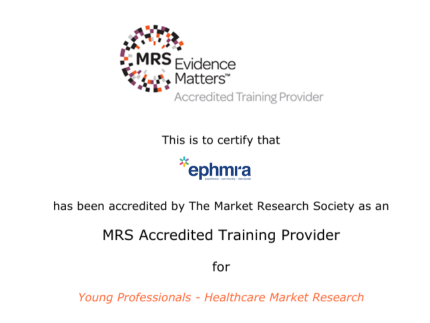
EPHMRA’s Learning & Development Committee is delighted to announce its upgraded and re-designed training modules aimed at Young Professionals in healthcare market research have achieved MRS Training Accreditation.
The modules (available from October 2024 and free to members) include:
- Introduction to Healthcare Market Research
- Managing a Healthcare Market Research Project